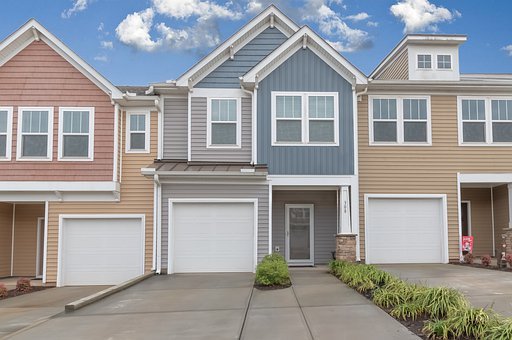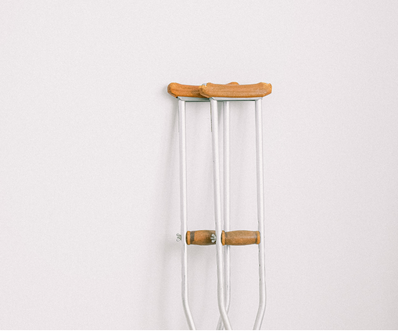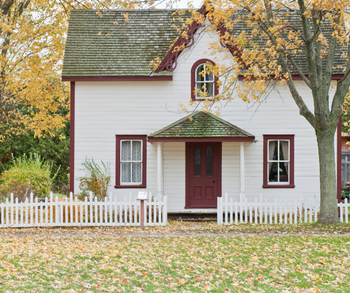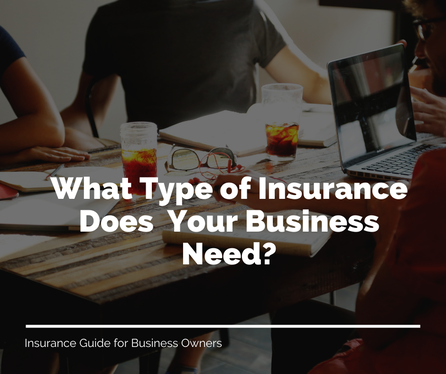Roberts Insurance Group Blog |
 In the insurance world, condo or unit-owners are in a totally different arena from owners of a single family dwelling. To start, unit-owners are buying property that is attached to another unit-owners property. As you can imagine, insuring a condo, townhome, or apartment is totally different than insuring a single family dwelling. Single family dwellings are insured under an HO-3 or an HO-5 policy. Without getting too deep in the weeds, these policy forms are designed to cover the entire structure, attached structures (porches, decks), detached structures (fences, garages, pool houses, sheds), and the owner's personal property. Condo or unit-owners policies (HO-6) are designed to cover the unit from the dry wall in and the owner's personal property. Everything from the dry wall out is covered under a community association's master policy. Example: a windstorm that causes damage to the building's roof is covered by the master policy. A water leak that causes damage to the floor of a unit is covered by the unit-owner's HO-6 condo policy. A Few Things to Be Aware Of With Your HO-6 Condo Policy:
These are just a few differences between a traditional homeowners policy and a condo or unit-owners policy. At the Roberts Insurance Group, we make sure all of our clients have sufficient coverage by reviewing with them, in depth, to make sure their policy works just the way they want and fits in their budget. Give us a call today at 678-250-8133 to make sure you're properly covered!
2 Comments
 This is a question we get all of the time. I was actually speaking with a Georgia homeowner the other day and this question was brought up. The homeowner said, “I think I need an umbrella policy to make sure my home is fully covered”. What if I told you that an umbrella policy doesn’t cover your property at all but it does help protect it? I know that is confusing, so let me explain. What is an Umbrella Policy? For Georgia homeowners (and business owners), an umbrella policy is an extra layer of liability protection that stacks on top of your underlying policies. So for a homeowner in Georgia, it would stack on top of the liability provided by their home (or renters) policy, auto policy, and toy policies (boat, ATV, golf cart, etc.). For business owners in Georgia, it stacks on top of their underlying commercial auto and general liability policies. What do I mean by stack on top? Every auto and home policy has liability coverage built into the policy. For auto insurance in Georgia, the liability coverage starts at $25,000/$50,000/$25,000 and goes up from there. This is the coverage that would pay another party for their bodily injury (medical bills, lost wages, pain and suffering, etc.) or property damage (fixing or replacing their car) if you are at fault for the damage. For a homeowners policy, the liability coverage generally starts at $100,000 and goes up from there. This would help pay defense costs and settlements if a non-auto accident lawsuit is brought against you or a member of your household. An umbrella policy will stack on top of the underlying liability for each policy in the household, meaning if the liability coverage on your home or auto policy gets depleted, the umbrella policy will kick in to provide additional protection. It should be worth noting that the umbrella policy will not pay to rebuild your home or fix your car. It is strictly for liability purposes. So it does help protect your property, income, and other assets from being seized, garnished, or from having a lien applied. How much coverage can you get and how much does it cost? Umbrella policies start at $1,000,000 of coverage and go up from there. Some companies will cap out at $2,000,000 per household but many of them will go up to $25,000,000. Umbrella policies are extremely affordable in Georgia with $1,000,000 policies starting as low as $10 per month for some Georgia homeowners. What’s the catch? The only real “catch” is that umbrella policies typically require Georgia homeowners to carry a specific liability limit on the underlying policies. For auto insurance, they typically require $250,000/$500,000 as the underlying requirements for bodily injury liability (this was raised from $100,000/$300,000 over the last several years, so in some cases you could be “grandfathered” in with the $100,000/$300,000 underlying limits). For homeowners in Georgia, the typical underlying requirement is $300,000 although some companies will allow $100,000 on the underlying homeowner or renters policy. Who needs an umbrella policy? There’s not an exact answer to this question but generally speaking, any household making over $100,000 or with more than $250,000 in assets should strongly consider purchasing a liability umbrella policy. You wouldn’t insure your house for less than the cost to replace it, so why would you insure your income or assets for less than they’re worth? Give us a call today to see if an umbrella policy is right for your household or business! Does Your Business Need A Workers Comp Policy If You Already Have A General Liability Policy?1/18/2021  We hear it from business owners all of the time. “We already have a general liability policy, so we don’t need a worker’s compensation policy”. This is a very common misconception that could end up putting you out of business. A workers comp and general liability policy are two completely different and separate policies-- ALWAYS. If you have 1 or more employees or even if you use 1 or more subcontractor that is uninsured, you absolutely need a workers comp policy in addition to your general liability policy. Your business’ commercial general liability policy covers your company from lawsuits from a third party. If a customer slips and falls in your office, for example. Your workers comp policy covers your company from lawsuits from an employee who was injured while performing their job duties. If your employee slips and falls at work, workers compensation is the only policy that would protect your company. WORKER’S COMPENSATION INSURANCE COVERAGE IS A POLICY DESIGNED TO COVER THE EMPLOYEES IF THEY ARE INJURED WHILE WORKING ON THE JOB. In Georgia, if an employee is injured on the job and you are not providing worker’s compensation benefits then you are responsible to pay their medical bills for the injuries and their loss time. In addition to this, you’ll receive a pretty hefty fine from the State of Georgia. This combination of expenses can amount to several hundred thousands of dollars. That’s a lot of money to almost every business in Georgia and will put most small Georgia businesses completely out of business. Worker’s compensation insurance premiums are composed based on the amount of payroll and the type of work the employee is completing. For instance, a construction company has construction workers using heavy machinery and on dangerous job sites, which present a pretty big risk. The same company may have administrative employees that do paperwork in an office setting, which presents far less of a risk. You work too hard for your business to have it suffer financially because you did not have the proper insurance protection. Call us today to make sure your Georgia business is properly covered from all that life throws at it.  One of the biggest factors in determining a business’ workers compensation premium is their Experience Modification Rate, also known as the Mod. The Mod is a way that insurance companies can rate a business’ premium based off of their previous claim history. It is somewhat similar to an accident/claim surcharge or a claim-free discount on a personal lines policy. The insurance company will charge you extra if you have recent claims and give you a discount if you’ve gone a while without a claim. The standard Mod for any given business or industry is 1.0. This means that companies with claims on their record will have a Mod above 1.0, meaning your business will pay about the industry average. Companies who are claim free have the potential to have a Mod below 1.0 and pay less than the industry average. This is essentially a “discount” on your worker’s comp premium. So what does this mean for your business? The National Council on Compensation Insurance (NCCI) determines the Mod for most state rating purposes. The NCCI’s Mod is mandatory and the minimum standard can’t be changed by your insurance company. Since the Mod is such a big factor in regards to the workers compensation premium, this can have a major impact on a business’ bottom line. For example, your business has had a few injuries over the past few years, resulting in claims against your workers comp policy. This may give you an experience mod of 1.6. On the other hand, your competitor down the street has been claim free for many years. This may give them an experience mod of 0.8. If everything else is the same, this means that your company is paying about 80% more in premiums than your competitor down the street! At the Roberts Insurance Group, we work with many businesses that have higher than average experience modifiers to help get them lowered and to help businesses in our community increase their bottom line. Contact us today to see what we can do for your business.  Top 15 Ways to Lower Your Insurance Costs in Georgia Without Cutting Coverage: Everyone is always looking for ways to save on their insurance costs. Every insurance commercial on TV promises discounts for this and discounts for that. However, most policyholders in Georgia still feel like they aren’t able to totally maximize their savings without raising deductibles or cutting their coverage. Since discounts and savings opportunities are different between each company. It is important to make sure your agent or broker has exhausted every discount opportunity before you consider cutting your coverage or raising deductibles. This is exactly what we do for our clients at the Roberts Insurance Group. HERE ARE 15 WAYS YOU MAY BE ABLE TO REDUCE YOUR INSURANCE COSTS IN GEORGIA:
The insurance industry is constantly changing. Everything from rates, to coverages, to discounts. It is important to stay on top of the changing marketplace, which is what the Roberts Insurance Group does for our clients. We’re always looking for additional savings opportunities for our clients. Whether it’s through new discounts, helping find a better rate with a new company, or through our annual review process to make sure our clients aren’t paying for anything they don’t need. Don’t believe everything you see on the TV ads and don’t spend hours and hours researching online or calling around to a thousand different agencies. Just pick up the phone and call 678-250-8133 or email us at [email protected] and we’ll handle all of that for you!  Ok, let’s get down to brass tacks, who has the best homeowners insurance in Georgia? There’s a lot that goes into figuring out who has the best homeowners insurance in Georgia. The ads on TV lead us to believe that having the best homeowners insurance means having the lowest price. At the Roberts Insurance Group, we think the price you pay is a big factor but it’s not the only factor... The answer to this question has to do with whether or not the insurance has the best coverage for your individual situation. The best home insurance coverage will make sure that you do not have to rely on Go Fund Me or or other donations to make sure you are back on your feet and right where you left off before tragedy struck. HERE ARE SOME KEY THINGS TO LOOK FOR IN YOUR HOME INSURANCE COVERAGE:
Is it worth saving $50 to have extra exposure for a claim that could cost you $100,000 out of pocket? Is it worth paying an extra $200 to have your policy with a “big-name” insurance company? The answer to both is NO. Having the right coverage in place should be your top priority. Many of the “big-name” insurance companies spend billions and billions of dollars advertising on TV, online, and in your community. They try to create a message that “since you see us everywhere, we offer something no one else can”. This is a bit misleading. They imply that you may not get certain coverages elsewhere, which is not true at all. It all comes down to making sure you have the right coverage in place. Take a minute and contact one of the professionals at the Roberts Insurance Group to make sure you have the right coverage in place.  Let’s face it- running a small business can be overwhelming. Small business owners have to wear a lot of hats and become experts at just about every aspect of their business. When it comes to business insurance, it can be like learning a foreign language. Yes, you may have insurance in place to satisfy certain requirements to be able to operate. But do you have the right coverage in place? Sadly, many business owners do not find out until after a claim is filed. And even worse, getting involved in a lawsuit or having a claim denied can put you out of business quick. Lucky for you, we specialize in working with business owners to make sure their commercial insurance plan will work the way you want. We explore all options and put together a plan that protects everything that is important to your business to keep things running smoothly, no matter what life throws at it. Some of the different types of commercial insurance are: Business Property Insurance– This covers loss to a business’ building and/or property. It can cover inventory for a retail store or the computer that I am working on right now. Just about every business needs business property insurance. General Liability Insurance– This is probably the most common type of commercial/business insurance. It gives general liability coverage if the business is involved in a lawsuit. Covering you for the damage, injury, etc of any third party or their accompanied property. Business Owners Policy (BOP) – This type of policy is a staple of small businesses. It essentially combines general liability insurance and business property insurance into one unique policy, often accompanied with several other bells and whistles to maximize coverage. It is often much more affordable as opposed to buying separate policies and offers better coverage. Commercial Auto Insurance– This protects your company’s vehicle(s) and provides liability protection if your vehicle is involved in an accident. Having the right amount of liability coverage is crucial for Georgia business owners. Have you noticed that there’s a personal injury attorney advertising on every other billboard, radio ad, and TV ad? That’s because there’s big money on the table. If you don’t have enough coverage, an at-fault accident can no doubt put you out of business. Workers Compensation– This is a must have for any business that has employees or subcontractors that do not have their own insurance. This covers your employees if they get hurt on the job. If they do get hurt while performing their job duties or on the premises, your business is liable for their injuries and missed wages. Cyber Liability– No matter how big or small your business is, you have an exposure to cyber liability. The scary thing about that is that no one knows exactly how big that exposure could actually be until a breach happens. Yes, you can be held liable for a hacker stealing client or prospect data, even if you’ve taken every possible measure to make sure that doesn’t happen. The best option is to always pass this risk to an insurance company through a cyber liability policy Employment Practices Liability Insurance (EPLI)– If you have employees, you need to make sure you have this coverage. This provides coverage to your company against claims made involving discrimination, wrongful termination, etc. Professional Liability Insurance- Professional liability insurance (PLI) is insurance that protects professionals against negligence and other claims initiated by their clients. Professionals who have expertise in a specific area need this type of insurance because general liability policies do not offer protection against claims or lawsuits from clients alleging negligence, malpractice, or misrepresentation. This is similar to malpractice insurance for medical professionals, lawyers, and accountants or errors & omissions (E&O) insurance for financial services professionals like myself. If you're business isn't 100% sure if something is covered with your current plan or if you are simply interested in increasing your bottom line, click here or call us at 678-250-8133 for a no obligation, complimentary review. -Alex Roberts |
Contact Us(678) 250-8133 Archives
February 2022
Categories |

 RSS Feed
RSS Feed